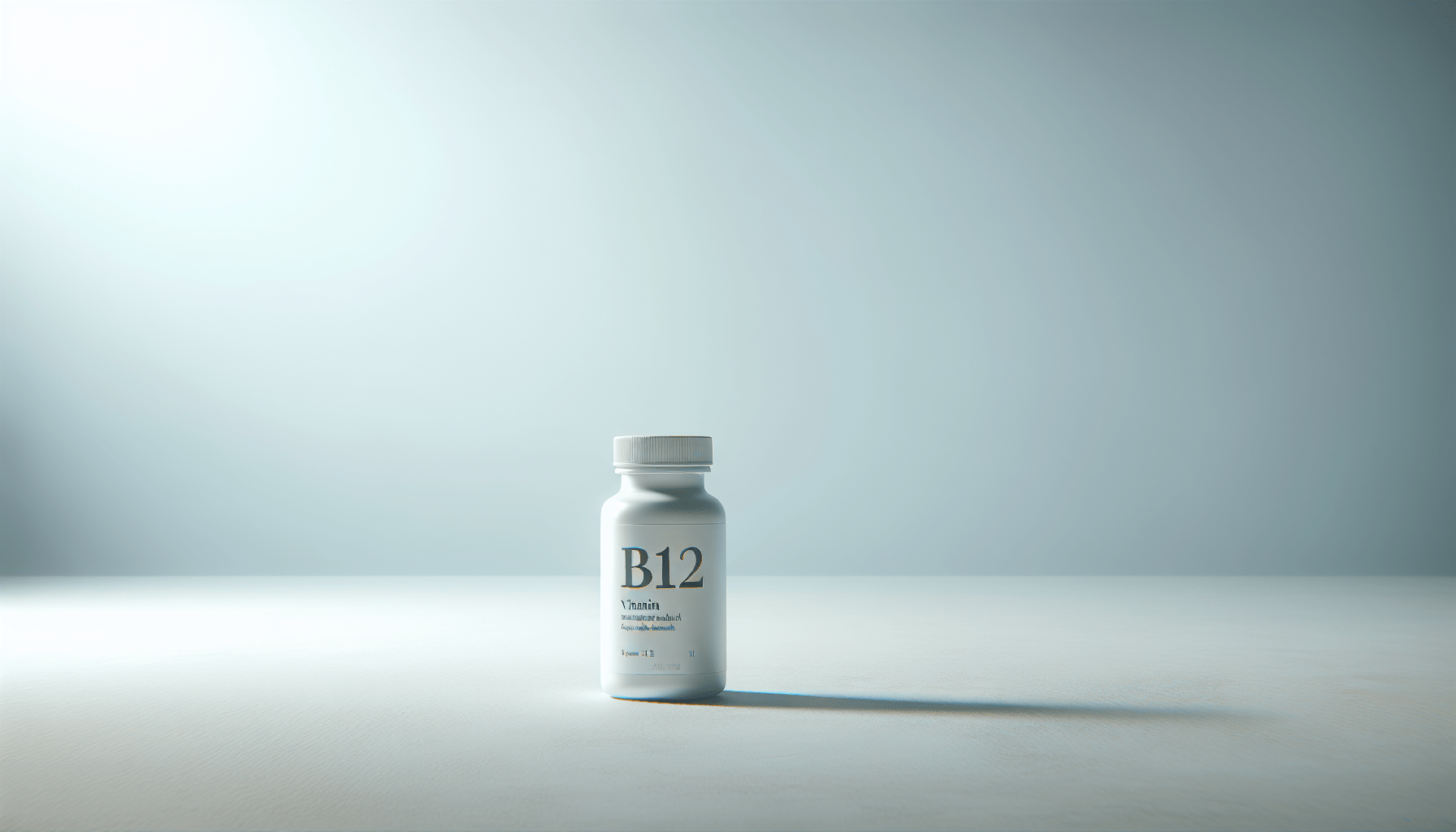Welcome to an article exploring the potential benefits of vitamin B12 for managing eczema. Eczema can be a frustrating and uncomfortable skin condition, but there is hope that vitamin B12 may offer some relief. Many individuals have found that incorporating vitamin B12 into their skincare routine has helped to reduce inflammation and improve overall skin health. In this article, we will dive into the various ways in which vitamin B12 may benefit those dealing with eczema, as well as some tips on how to incorporate this essential vitamin into your daily routine. So sit back, relax, and let’s explore the potential of vitamin B12 for managing eczema together.
Can Vitamin B12 Help Eczema?
If you suffer from eczema, you are likely constantly searching for ways to manage and alleviate your symptoms. One potential solution that has gained attention in recent years is vitamin B12. But can vitamin B12 really help with eczema? In this article, we will explore the relationship between vitamin B12 and eczema and determine whether incorporating this vitamin into your regimen could benefit your skin condition.
What is Eczema?
Before we delve into the potential benefits of vitamin B12 for eczema, let’s first understand what eczema actually is. Eczema is a chronic skin condition characterized by inflamed, red, and itchy skin. It can occur anywhere on the body and often presents as patches of dry, scaly skin. Eczema is a common condition that affects millions of people worldwide, and it can be triggered by a variety of factors, including genetics, environmental factors, and allergies.
The Role of Vitamin B12 in the Body
Vitamin B12, also known as cobalamin, is a water-soluble vitamin that plays a crucial role in various bodily functions. It is essential for nerve function, DNA production, red blood cell formation, and overall energy levels. Vitamin B12 is primarily found in animal products such as meat, fish, dairy, and eggs. However, it can also be obtained through supplementation for those who follow a vegetarian or vegan diet.
The Potential Link Between Vitamin B12 Deficiency and Eczema
Research has suggested that there may be a link between vitamin B12 deficiency and skin conditions such as eczema. Vitamin B12 deficiency can lead to various dermatological issues, including dry skin, hyperpigmentation, and hair changes. Some studies have indicated that low levels of vitamin B12 may exacerbate eczema symptoms or contribute to the development of the condition.
Benefits of Vitamin B12 for Eczema
Given the potential relationship between vitamin B12 deficiency and eczema, it stands to reason that incorporating adequate levels of this vitamin into your diet or supplement regimen could benefit your skin condition. Some potential benefits of vitamin B12 for eczema include:
- Improved skin barrier function: Vitamin B12 plays a role in maintaining the skin barrier, which can help prevent moisture loss and protect the skin from irritants.
- Reduced inflammation: Vitamin B12 has anti-inflammatory properties that may help alleviate redness, swelling, and itching associated with eczema.
- Enhanced wound healing: Vitamin B12 is essential for cell regeneration and tissue repair, which can aid in the healing of eczema lesions and promote overall skin health.
Studies Supporting the Use of Vitamin B12 for Eczema
While more research is needed to definitively establish the efficacy of vitamin B12 for eczema, some studies have shown promising results. A 2015 study published in the British Journal of Dermatology found that vitamin B12 supplementation improved eczema symptoms in patients with low levels of the vitamin. Another study published in the International Journal of Dermatology in 2017 reported similar findings, indicating that vitamin B12 supplementation may help reduce eczema severity and frequency of flare-ups.
How to Incorporate Vitamin B12 Into Your Routine
If you are interested in exploring the potential benefits of vitamin B12 for your eczema, there are several ways you can incorporate this essential nutrient into your routine:
-
Dietary sources: Include vitamin B12-rich foods in your diet, such as salmon, eggs, dairy products, and fortified cereals.
-
Supplements: Consider taking a vitamin B12 supplement to ensure you are meeting your daily requirements, especially if you are vegan or vegetarian.
-
Topical treatments: Some skincare products contain vitamin B12 as an active ingredient, which can be applied directly to the skin to target eczema symptoms.
-
Consultation with a healthcare provider: Before making any significant changes to your diet or supplement regimen, it is essential to consult with a healthcare provider or dermatologist to determine the best course of action for your individual needs.
Risks and Considerations
While vitamin B12 is generally considered safe for most individuals, there are some potential risks and considerations to keep in mind when incorporating this vitamin into your routine:
- Interactions with medications: Vitamin B12 supplements may interact with certain medications, such as proton pump inhibitors and metformin.
- Allergies and sensitivities: Some individuals may be allergic or sensitive to vitamin B12, so it is essential to monitor for any adverse reactions.
- Dosage: It is important to follow recommended dosages for vitamin B12 supplementation to avoid potential side effects, such as gastrointestinal upset.
Conclusion
In conclusion, while more research is needed to definitively establish the benefits of vitamin B12 for eczema, there is evidence to suggest that this essential nutrient may play a role in managing and alleviating eczema symptoms. By incorporating vitamin B12-rich foods, supplements, or topical treatments into your routine, you may experience improvements in your skin condition. Remember to consult with a healthcare provider before making any significant changes to your regimen and monitor for any adverse reactions. With the right approach, vitamin B12 could be a valuable asset in your quest for healthier, happier skin.
